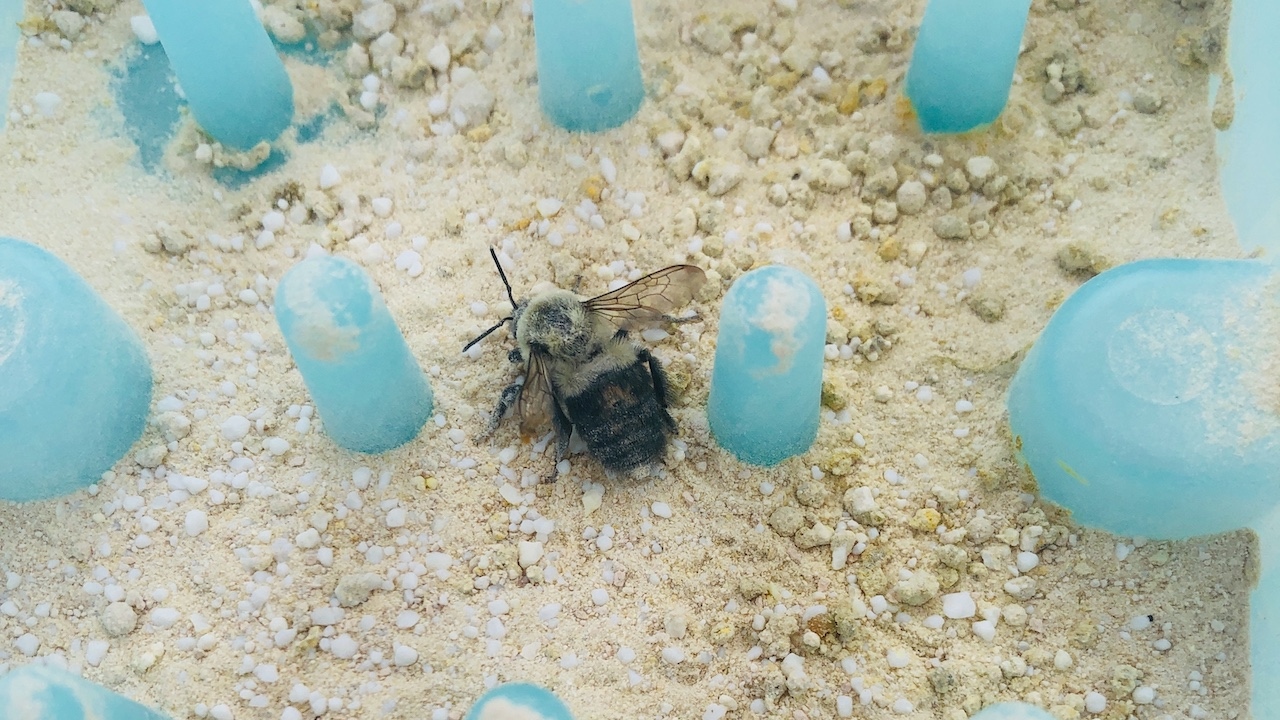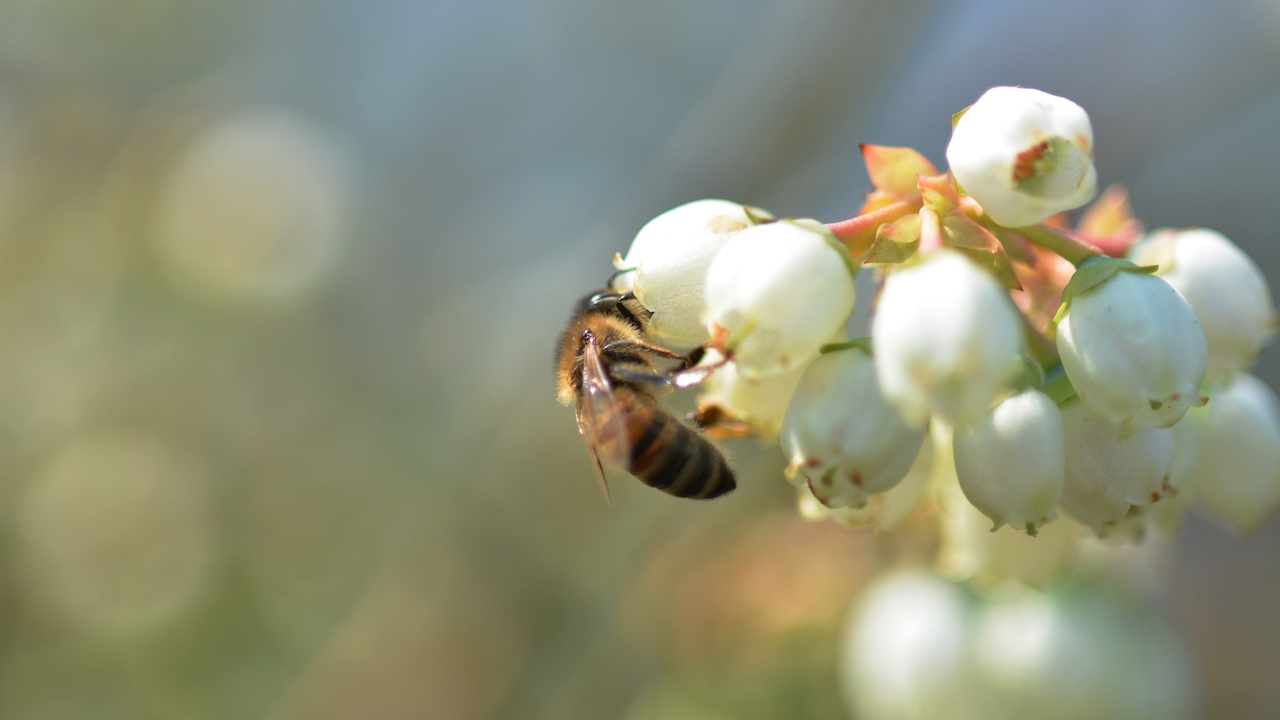Jul 25, 2023
Bee Vectoring Technologies uses bees to safeguard crops with all-natural disease fighting solution
Everyone wants the food they eat to be natural — free from pests, diseases, and chemical pesticides that were traditionally used in crop management. With the rising awareness about personal health and the environment, there's a growing demand to replace chemical fertilizers and pest-control substances with natural biological solutions.
While the use of traditional chemical solutions still remains widespread today, many industry experts believe that biological agricultural products will eventually replace them in the crop-protection and fertilizer market that is currently with an estimated market size of USD$240 billion.
The end goal, simply, is to grow more food with less chemicals and damaging impact on the environment.
This is the core vision of Bee Vectoring Technologies International Inc. (CSE: BEE | OTCQB: BEVVF), the first company to use commercially reared, managed bumblebees and honeybees to deliver disease and pest-control. Its proprietary biofungicide, Vectorite™ with CR-7, is directly applied to the flowers of various crops – combating diseases and protecting the fruit’s development.
Bees deliver disease-fighting power to flowers
This is how it works:
- At the start of blooming season, Bee Vectoring Technologies (BVT) works with its farmer customers and apiaries to place commercial beehives on agricultural land.
- Utilizing either a custom-designed hive for bumblebees or a tray attached to a hive for honeybees, as bees exit the hive they move through a natural organic compound, Clonostachys rosea strain CR-7, and this attaches to their bodies.

- As the bees pollinate the flowers, the CR-7 microbe in the Vectorite powder falls off their bodies and into the bloom, colonizing the plant tissue and replicating to provide protection for the fruit from pests and diseases.
This solution is not only all-natural but also addresses environmental concerns. It eliminates water usage, which can pose a runoff risk, and has zero greenhouse gas emissions. Moreover, unlike conventional spraying, its precise application avoids soil contamination and preserves biodiversity.
The benefit of using bees is their natural connection to flowers, as it serves as their primary food source. When considering diseases that impact crops by infecting them through flowers, and subsequently affecting the fruits that farmers intend to sell, bees are presented as a highly effective and natural solution.
“Overall, we’ve typically seen 20 to 25% increases in yield – and sometimes even more,” said Ashish Malik, CEO of BVT. “And if growers can get more berries per acre, that’s more return on their investments.”

Cutting-edge solution gains commercial momentum and captivates industry leaders
While the technology behind BVT began development 20 years ago, the company officially launched in 2010 and went public in 2016. By 2019, BVT had obtained a license from the U.S. Environmental Protection Agency, enabling operations in the United States. Since their first commercial growing season in 2020, BVT has experienced steady growth, fueled by their impressive portfolio of over 55 worldwide patents and positive customer feedback.
BVT’s customer retention is currently greater than 80% and its technology is being used on thousands of acres in several key agricultural states, including Florida, Georgia, Michigan, and more. In addition, farmers are reporting between 20 to 40 times return on investment from the BVT treatments compared to conventional chemical spray solutions.
Added Mr. Malik, “it is also important to note that our recurring customers are mostly enterprise sized growers focused on data driven return metrics and Return on Investment. Our continued ability to grow within these larger clients is a clear validation of the BVT system’s scalability potential.”
Aiming to further strengthen its market presence, BVT has partnered strategically with industry leaders, leveraging their distribution and marketing channels to scale operations. Together, they are focused on developing CR-7 as both a foliar spray and seed coating application, tapping into new market opportunities such as soybeans to diversify and increase revenue potential.
Additionally, BVT is actively engaged in licensing conversations with multinational agricultural players, resulting in the establishment of two enterprise sized commercial partnerships, plus several testing and developmental agreements. With 500 deals in the Ag-biologicals sector in the last 10 years, including 80 just in the last year, significant opportunities for mergers and acquisitions arise.
“Industry leaders are taking notice of our unique assets – both bee vectoring, as well as our unique CR-7 – and are looking to partner with us,” said Mr. Malik. “This will not only lead to scaling our business through new revenue streams, but also makes BVT an attractive target for traditional Agchem players who are looking to freshen their portfolios to meet a growing need for more environmentally responsible solutions.”
Expanding market with strong IP and proven technology
“There’s a huge, growing demand for biological products around the world to fight various disease and pest issues today,” said Ashish Malik. “As well, BVT is aiming to expand its market, with the registration process underway in Mexico and Canada, and soon in Europe, in addition to more than 70 trials on multiple crops in six countries.”
What sets BVT apart is that it is a significantly de-risked investment backed by its strong intellectual property, proven technology and a growing platform that can produce multiple products and market applications. All of this equates to applying this proprietary technology into a winning business plan.
“Feeding the population in a responsible way is a critical mission for BVT, and I strongly believe that delivering safe and affordable food, while preserving the health of our environment for this generation and beyond, is one of the most important challenges that we as a society have to meet” concluded Mr. Malik.
Learn more about Bee Vectoring Technologies International Inc. on its website as well as on: